
Leocereus is a genus of cactus. Its only species is Leocereus bahiensis, first described by Nathaniel Lord Britton and Joseph Nelson Rose in 1926.
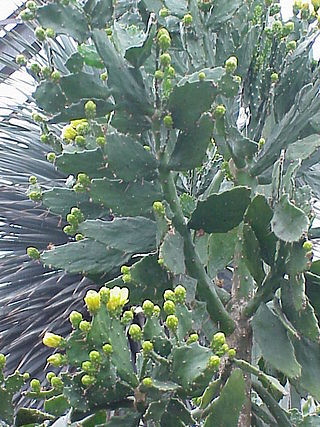
Brasiliopuntia is a genus in the cactus family, Cactaceae. It contains only one species, Brasiliopuntia brasiliensis.

Melocactus azureus is a species of cactus. It is endemic to Brazil, where it is known only from Bahia. It is locally abundant but the populations are fragmented and vulnerable to habitat degradation.
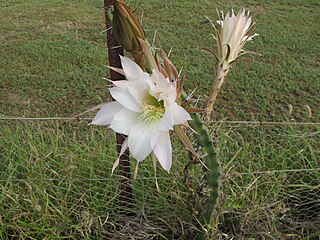
Harrisia pomanensis is a species of cactus.
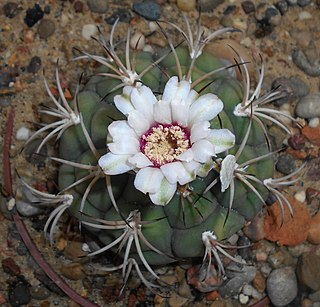
Gymnocalycium anisitsii is a globular cactus belonging to the family Cactaceae. The specific epithet honors the Hungarian pharmacist Dániel Anisits J. (1856-1911).

Gymnocalycium monvillei is a species of Gymnocalycium from Argentina.
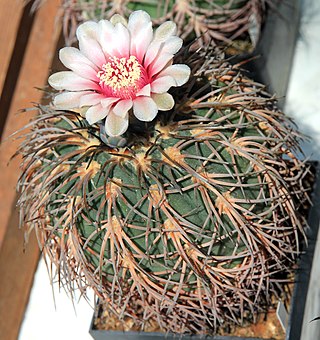
Gymnocalycium spegazzinii is a species of Gymnocalycium from Argentina and Bolivia named after the botanist C. L. Spegazzini.

Echinopsis aurea, is a species of Echinopsis found in Argentina.

Lobivia ferox, is a species of Lobivia found in Bolivia and Argentina.

Lobivia pentlandii, is a species of Lobivia found in Bolivia and Peru.

Lobivia pampana is a species of Lobivia found in Peru.

Mirabella albicaulis, synonym Cereus albicaulis, is a species of flowering plant in the family Cactaceae, native to Northeast and Southeast Brazil. It was first described by Britton and Rose in 1920 as Acanthocereus albicaulis.
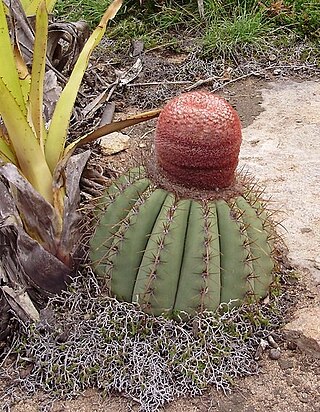
Melocactus ernesti is one of the Turk's cap cacti, and is native to Bahia and Minas Gerais States, Brazil.

Myrtillocactus cochal, the candelabra cactus, is a species of flowering plant in the family Cactaceae, native to Baja California. Individuals can reach 3 m (10 ft), and are hardy to USDA zone 9b.

Cleistocactus smaragdiflorus is a species of Cleistocactus found in Bolivia and Argentina.

Xiquexique gounellei is a species of plant in the genus Xiquexique of the cactus family. Common names include "Alastrado", "Chique-Chique", "Xique-Xique" and "Xique-Xique das Pedras".

Matucana haynii is a species of Matucana found in Peru.

Pelecyphora chihuahuensis is a species of flowering plant in the family Cactaceae, native to the Mexico.
Harrisia adscendens is a species of cactus found in Brazil.

Borzicactus sepium is a species of Borzicactus found in Ecuador.























